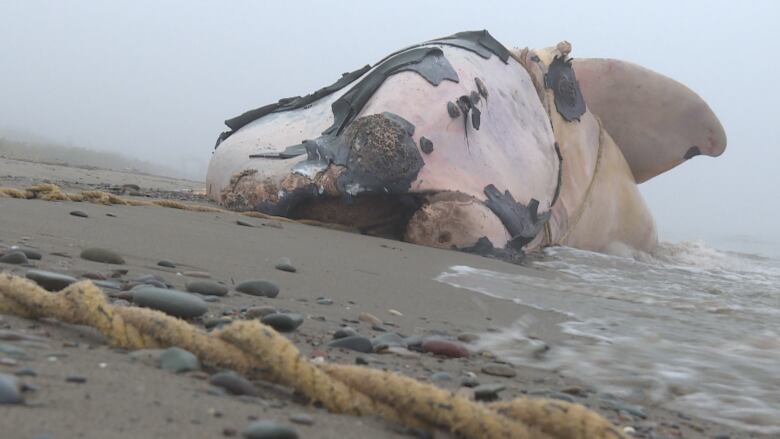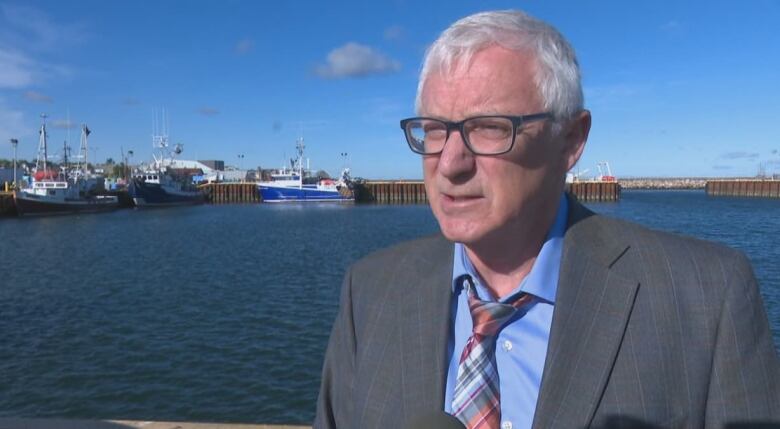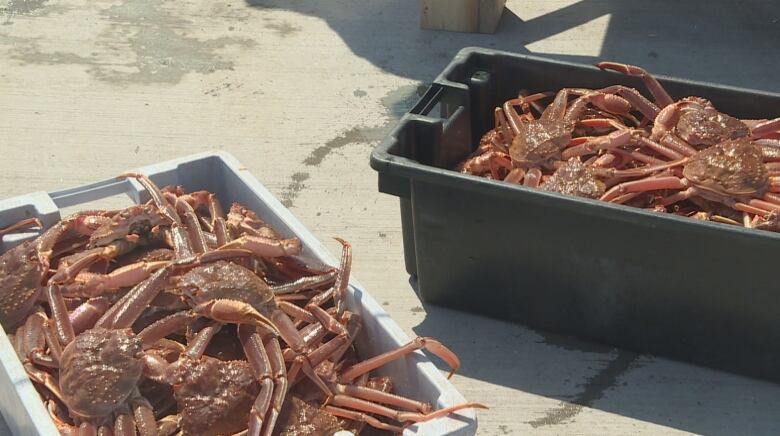New Brunswick fishermen alarmed at 2nd closure over whale sighting
Federal surveillance flight spotted 2 right whales just north of area closed to fishing for the season

Fishermen are alarmed over the closure of another fishing area in order to protect North Atlantic right whales, a move some saywill have a drastic effect on the industry.
Fisheries and Oceans Canada announced Sunday that asecond area off the coast of northern New Brunswick was being closed to fishing for at least two weeks.
"We're behind on our annual catches right now," said Steven Hughes, a deckhand on asnow crabfishing boat based out ofShippagan.
"This brought back the stress on the fishing industry."
- 6 fishing areas closing after 2 right whales spotted in Gulf of St. Lawrence
- Crab fishermen struggle as season begins under strict new regulations
The closure came after two endangered North Atlantic right whales werespotted in the Gulf of St.Lawrence over theweekend.
At least 18 North Atlantic right whales have been found dead in the last year.
Anarea of 14,000 square kilometres in the waters off northernNew Brunswick has already been off limits to fishermen since the start of the season and will be untilJune 30.
But Ottawa had warned that moretemporary closures would be put in place once the whales started migrating north.

The latest closure spreads3,000 square kilometres around the whale sighting, just north of the other closure.
'Spots are going to be fished out'
Hughes and the rest of the crewhavebeen making the 10-hour trip to the Magdalen Islands this year in search of new fishing grounds.
He said he worries the latestclosures will intensify fishing efforts elsewhere.
"The people that were fishing in that area, they're probably going to come fishing in our area, and the spots are going to be fished out sooner than later," he said.

Once that happens, Hughes said his crew will have to move even further and into other fishermen's terrain.
"The month of June is coming up and it's going to be very disastrous, I think, for the end of the season."
June is coming up and it's going to be very disastrous.- Steven Hughes, deckhand
The crab season started three weeks ago in the Acadian Peninsula, and it's estimated that crab fishermen have caught less than half of their allowed quota for the season. That's something Hughes said comes as a result of the struggle to find new fishing grounds.
"There's only so much crab you can take out of a fishing area," said Hughes.
'We're not bringing in enough crab'
But Hughes said the real concern is for factory workers.
"We're not bringing in enough crab for the employees in the fish factories to fulfil their weeks."

The general director of the Regional Acadian Federation of ProfessionalFishermen agrees.
"It was already difficult to catch the crab this season," Jean Lanteignesaid. "Wherever they move, they're going to close some zones ... We may end up closing a vast territory of the place we'd normally catch crab."
This latest closure will affect the snow crab fishery, but also toad crab, rock crab, lobster, whelk, winter flounder and Atlantic halibut, the federal fisheries department said.

Fishermen have until Wednesday at 4 p.m.to remove their traps from the water.
The department said it is alsoinvestigating after learning some crab traps were discoveredin the no-fishing zone this weekend.
With files from Marie Isabelle Rochon, Radio-Canada












_(720p).jpg)


 OFFICIAL HD MUSIC VIDEO.jpg)
.jpg)



























































































